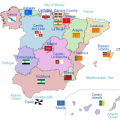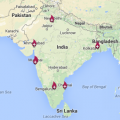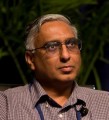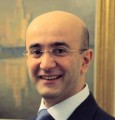You are here
News
2015
Apr 2015 /en/family-bankingSpain is a "funny" country from the private cord blood banking perspective, let me explain: Spain has a decentralised health system comprising 19 regions (Autonomous Communities), that each regulates their own hospitals. Some regions are as small as a city, for example Ceuta or Melilla. Each region has its own health competence or "ministry" that operates its own accreditation system. It is probably difficult to understand that a country with a size in square meters between Florida and Texas has such a complicated health structure. This political organisation comes down from the cultural and political idiosyncrasy in Spain. So having explained that let me explain the legal status of private cord blood banking in Spain.
Apr 2015 Stem cell therapy has the ability to revolutionise how we treat debilitating and life threatening illnesses. Despite the potency and potential of stem cells in cord blood, millions of litres of cord blood are discarded in the UK on a daily basis. This happens due to under resourced hospitals and low levels of awareness amongst healthcare professionals and parents-to-be. Wasting this resource has had a significant impact on the development of stem cell therapies in the UK and consequently the number of lives that can be saved.
Mar 2015 The medical potential that lies in cord blood is clear and the cord blood banking industry is booming, but have you ever considered the remaining perinatal tissues that are routinely discarded as medical waste?
Walking through the aisles of some pharmacies or healthcare stores, you will find capsules of sheep placenta being sold as health supplements, "placental hair masks" and other such things. There are now international services that offer dehydration and encapsulation of your baby's placenta, even placenta cookbooks! A more realistic service is offered by a few cord blood banks that preserve the stem cells from placental blood and placental tissue.
Mar 2015 Those cord blood banks that provide stem cell banking with high quality and true ethics will only promote stem cell therapies that are based on scientific facts. Too many private cord blood banks are taking a more emotive approach, making false claims, and using eye-catching features to attract clients.
Mar 2015 Cord Blood Registry® (CBR®), the world's largest newborn stem cell company, and China Cord Blood Corporation (CCBC), the first and largest cord blood bank in the world's most populous country, have entered into a strategic partnership agreement for research collaboration.
Recognizing the critical need to accelerate biomedical innovation and patient access to important technologies, the two prominent cord blood banks will share data on cord blood collection and preservation. The organizations will also work together to develop a family disease registry for CCBC's clients in China and jointly support newborn stem cell-related clinical trials in the United States and China.
Feb 2015 Cord blood banking, both public and private, has illustrated the power of having needed stem cells available for potential use. It is clear that stem cells that are identical to your own are the best, followed by those from near relatives, followed by those from donors who carry the same HLA phenotype. By best I mean that the body does not initiate a process of rejection against them.
Feb 2015 Regenerative medicine is a new field of medicine that offers new hope for many patients. Stem cells have the capability to induce tissue repair and ultimately reverse the progression of many diseases. This field unveils new possibilities for the alleviation of many incurable diseases.
Feb 2015 This legal case will please every family cord blood bank that has ever been attacked in the media: Moscow's Arbitration Court has given the largest damages award in the history of Russian media to Human Stem Cells Institute (HSCI) for a dispute over how family cord blood banking was portrayed in a magazine. The damages amount in rubles is equivalent to nearly USD 1 million.
Jan 2015 The Cord Blood Association (CBA) is a new trade and professional association for cord blood banks. The CBA will be an international nonprofit organization that promotes the banking and use of umbilical cord blood and related tissues for disease treatment and regenerative therapies.
Jan 2015 The United States Food and Drug Administration (FDA or USFDA) is a federal agency of the United States Department of Health and Human Services. The FDA was first formed in 1906, but in 1938 then President Franklin Delano Roosevelt signed a new Food, Drug, and Cosmetic Act (FD&C Act) which greatly increased the power of the FDA. Soon after 1938, the FDA began to designate certain drugs as safe for use only under the supervision of a medical professional, and this category of "prescription-only" drugs was securely codified into law by the 1951 Durham-Humphrey Amendment.










